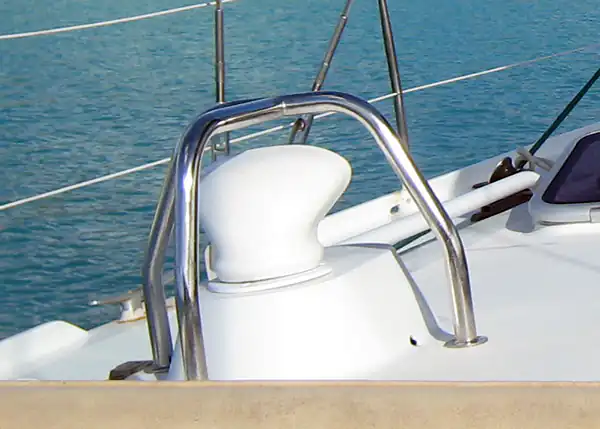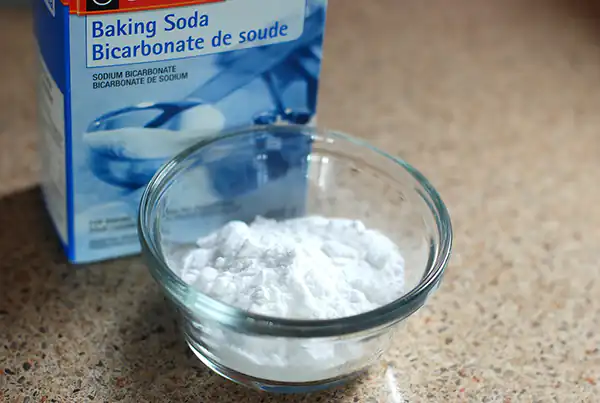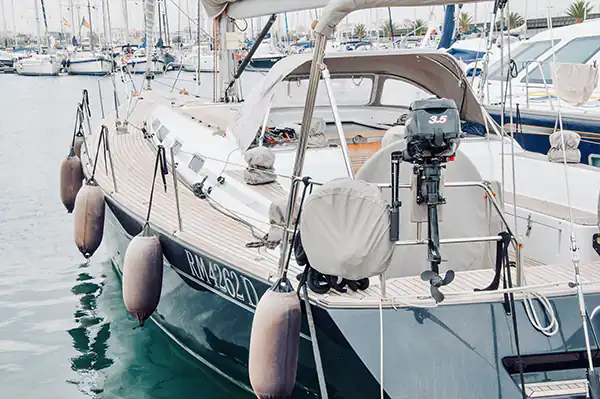How to Eliminate Unpleasant Odors on Board
Sailing at sea is all about freedom, freshness and adventure… unless bad smells spoil the atmosphere on board! There are lots of reasons why a boat might smell bad, including dampness, waste water tanks or fuel fumes. These can even make some people feel sick. But there are ways to avoid this.
With the right steps and a few simple tips, you can make sure your boat smells fresh and clean. Find out how to identify the causes, implement best practices, and choose effective, long-lasting solutions!

Wikimedia image
Pinpoint the Source of Unpleasant Odors on Your Boat
Before you can treat odors, it’s essential to understand where they’re coming from. Once you know where the odor is coming from, you can choose the best way to deal with it and stop it coming back. Here are the most common culprits:
Moisture and mold
The marine environment is naturally damp, allowing mold to thrive in poorly ventilated spaces such as cabins and storage areas. These molds give off small volatile organic compounds, which are responsible for that musty smell.
Waste water system
Waste water tanks and drains are often the main source of unpleasant odors on board. Over time, bacteria and organic deposits can accumulate, emit foul smells, especially if the system is not regularly maintained and cleaned.
Fuel tanks and vapors
Imperfectly sealed or aging fuel tanks and the engine fuel system can leak gases that spread into the cabins. As well as being unpleasant, fuel vapors present a safety risk if they collect in enclosed spaces.
Meal preparation and food waste
Cooking on board in confined spaces can easily cause smell issues down the line if food storage, leftovers or waste are not properly managed. Poor ventilation often exacerbates the problem.

Essential Habits to Prevent Unpleasant Odors
Once the cause has been identified, developing regular habits helps to maintain a fresh environment on board. Here are simple steps you can take to prevent unpleasant smells from taking hold.
Ventilate regularly
Critical but often overlooked, good ventilation is the key to an odor-free boat. Keep hatches, portholes, and windows open whenever possible, especially in the sleeping and galley areas, helps prevent moisture build-up. Fans will also come in handy, especially in warm tropical waters.
It’s essential to ensure adequate air vents and grilles are fitted to maintain airflow during long absences. They ensure stagnant air is extracted and replaced by fresh air. Dorade boxes are classic passive ventilation systems, while modern solar air extractors actively circulate air using solar power.

Use natural products
Opt for eco-friendly solutions like baking soda or white vinegar, which are highly effective at neutralizing odors. For example, baking soda can be sprinkled in enclosed spaces, such as closets, to absorb odors. Similarly, bowls of white vinegar can be placed in problem areas to eliminate lingering smells.
Maintain wastewater tanks and pipes
Draining wastewater tanks and flushing regularly with antibacterial solutions or diluted vinegar can help limit organic deposits and odor-causing bacteria. You can also reduce nuisance by adding activated charcoal filters to your tank ventilation ducts. Finally, ensure the filters and hoses are replaced regularly for optimal effectiveness.
Clean and maintain a strict hygiene
It’s important to keep textiles and surfaces on board clean and disinfected regularly, especially in the galley and cabins. This helps prevent bacteria buildup and reduces unpleasant odors. If your boat will be unoccupied for weeks or months, leave cupboards and lockers open, and stand mattresses and saloon cushions on their sides to improve airflow.
For optimal protection, remove sensitive textiles like deckwear, lifejackets, mattresses, and sails, and store them in a dry place to prevent dampness and mildew.
Long-Term Solutions to Prevent Odors on Board
If odors persist despite preventive measures, consider these permanent solutions to eliminate them.
Use specialized odors neutralizers
Odor neutralizers designed for marine environments don’t just mask unpleasant smells—they eliminate them by targeting the responsible molecules. Opt for non-toxic products made for confined spaces to ensure long-lasting results.

Upgrade ventilation systems and install dehumidifiers
A good ventilation system keeps air moving, which helps to reduce humidity and therefore mold and mildew. For areas prone to persistent odors, consider installing one or more dehumidifiers to maintain dry conditions, especially over the winter.
Treat wastewater systems with antibacterial products
Perform an annual antibacterial treatment of your wastewater systems to eliminate organic residues that cause odors. Additionally, regular use of enzymatic cleaners in tanks and pipes helps prevent unpleasant smells.
Protect textiles and materials
Protect textiles and upholstery from odors, especially those exposed to humidity. Use textile disinfectant sprays for quick treatment, and consider anti-humidity covers for cushions and mattresses to guard against ambient moisture.
Staying consistent with maintenance is often the hardest part. Ready4Sea, your digital logbook, makes it easy by reminding you of key tasks like anti-odor and anti-mold treatments. Let it do the remembering, so you can enjoy an odor-free boat.

By following these tips, you’ll not only eliminate existing odors but also prevent them from returning. A well-maintained and fresh-smelling boat isn’t just more comfortable—it’s a reflection of your care and readiness for adventure, so you can fully enjoy your time on the water.
